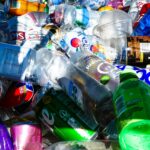
Coca-Cola Faces Backlash Over Dropped Reusable Packaging Pledge
- Thomas Nelson
- December 4, 2024
- Uncategorized
- 0 Comments
In a move that has drawn sharp criticism from environmental campaigners, Coca-Cola has apparently quietly abandoned its 2022 pledge to ensure that 25% of its drinks would be sold in reusable packaging by 2030. The sudden removal of this target from its website in November 2024, just before a global plastics summit, has sparked accusations of greenwashing and raised questions about the company’s commitment to tackling the global plastic waste crisis.
A Shift in Priorities
When Coca-Cola announced its reusable packaging goal in 2022, it was seen as a step toward addressing its reputation as one of the world’s top contributors to plastic pollution. The plan included refillable bottles and dispensers, which advocates lauded as a more sustainable alternative to single-use plastic.
However, the company has now shifted its focus to recycling, with new targets emphasizing the use of 35%-40% recycled materials in its packaging and the collection of 70%-75% of bottles and cans introduced annually. These updated goals mark a retreat from the company’s previous commitment to use 50% recycled material in packaging by 2030.
Accusations of Greenwashing
Environmental groups have accused Coca-Cola of engaging in greenwashing—promoting an environmentally friendly image while failing to implement meaningful sustainability measures. Critics argue that by dropping its reusable packaging target, Coca-Cola is doubling down on single-use plastics, which, even when recycled, still contribute to pollution.
Von Hernandez, global coordinator for the campaign group Break Free from Plastic, called the company’s actions a “masterclass in greenwashing,” accusing it of flooding the planet with more plastic while failing to meet even low-bar commitments.
Coca-Cola’s move comes at a time when global efforts to address the plastics crisis are faltering. At a recent global plastics summit in Busan, South Korea, nearly 200 nations failed to reach an agreement on reducing plastic production. Sharp divisions emerged between countries advocating for strict limits and those focusing on waste management.
Campaigners argue that Coca-Cola’s reliance on recycled single-use plastics aligns with the less ambitious approach and undermines the push for reusable packaging, which could have a more significant impact on reducing plastic pollution.
Coca-Cola’s Response and Public Perception
Coca-Cola has remained largely silent on its reasons for removing the reusable packaging goal. A statement from the company reiterated its commitment to growing its business responsibly but failed to address the change directly.
This lack of transparency has fueled criticism from environmentalists and consumers alike, reinforcing Coca-Cola’s reputation as a leading contributor to global plastic waste. Campaigners continue to urge the company to prioritize reusable packaging over recycling targets, emphasizing that single-use plastics—recycled or not—remain a significant environmental hazard.
As one of the world’s most visible brands, Coca-Cola’s actions on sustainability carry weight. By stepping back from its reusable packaging goals, the company has reignited calls for greater corporate accountability in addressing the plastic pollution crisis.
For now, the question remains: will Coca-Cola heed the growing demand for meaningful action, or will it continue to fall short of its promises? For environmental advocates, the answer could shape the future of corporate sustainability efforts worldwide.

